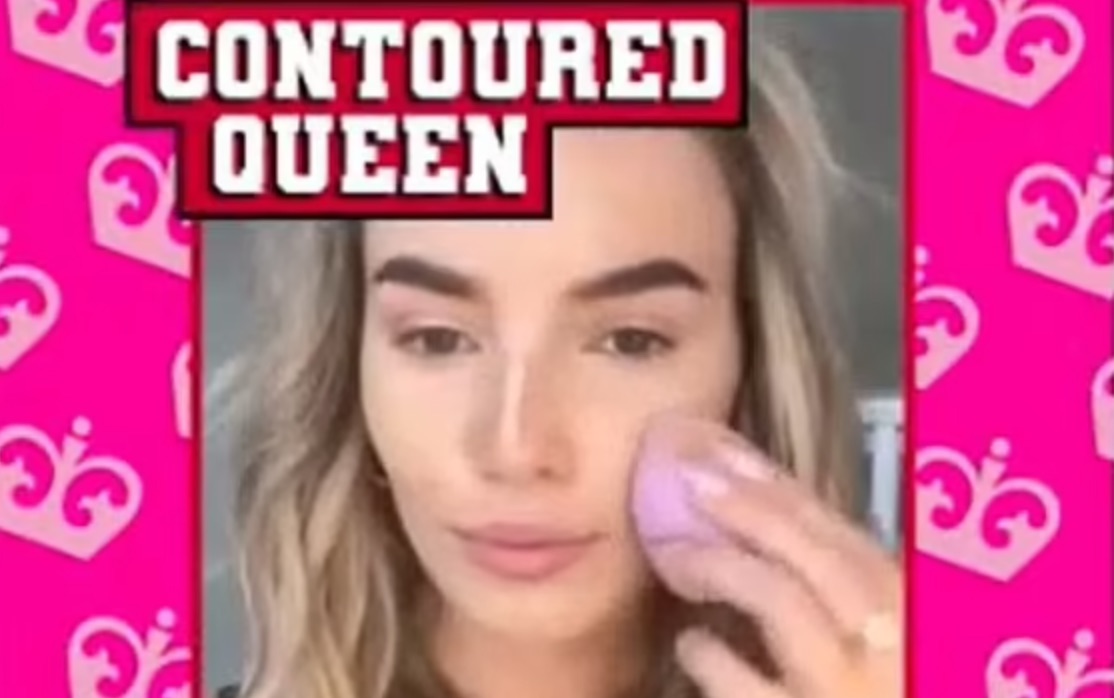A Rimmel London makeup advert with the tagline “Get ready to slay this back-to-school season” has been banned by the Advertising Standards Authority for “playing on young girls’ insecurities”. The regulator said that the advert implied it was necessary to wear makeup at school to succeed, and was therefore irresponsible.
The advert is itself relatively innocuous, and arguably far less damaging than most sponsorships and product placements on social media. Beauty vloggers who film their “morning routine and everyday makeup” videos for mass audiences already perpetuate the idea that a full face of makeup is required every day.
The decision to ban the advert is also interesting given that virtually all beauty advertising plays on women and young girls’ insecurities in one way or another, by constantly giving us something new to worry about and spend money on.
In the early 2010s, the beauty industry sold big brows — and a whole new era of threading, waxing, microblading and laminating was born. Then there came “Instagram face”, which needed products for contouring, baking, cut-crease eyeshadow and highlighting. After that was Kylie Jenner, the face that launched a thousand lip fillers. Then, earlier this year, focus switched to buccal fat removal, and giving patients a haunted, hollowed-out look. Now, it’s all about natural-looking “no-makeup makeup”, and selling expensive skincare — and this is what the ASA should be worried about.
Up and down the country, children and pre-teens are not asking for Barbies and bikes for Christmas this year; instead, they’re requesting toners, serums, cleansers and moisturisers. The hashtag #skincare saw a 45% increase in searches this year, and “kidpreneur” influencers like Haven Garza (who is 7 years old and has nearly 5 million TikTok followers) are reviewing skincare products to sell to other children their age. Penelope Disick, the 11-year-old daughter of Kourtney Kardashian, posted a video of her skincare and makeup routine that has over 8 million views on TikTok. A skincare range by 19-year-old actress Millie Bobby Brown is particularly popular with teenagers, while skincare companies such as Drunk Elephant are being endorsed and followed by children as young as eight years old.
Why are children playing with luminisers and eye serums rather than rollerblades and watercolours? Why are we teaching them anti-ageing strategies before they have even aged? Part of this comes down to the ever-powerful marketing strategy that we must prevent ageing rather than reverse it: for example, the hashtag #preventativebotox has more than 53 million views on TikTok, and more than a quarter of people who have Botox are under 34. This obsession with “prejuvination” is just another manifestation of consumer culture, and social media has long been more about influencing our shopping habits than it is keeping up with our friends.
Yet there is something deeply disheartening about the idea that it is now completely normal, indeed accepted, to market products that are perfectly superfluous to pre-pubescent teens. We are not only teaching them to fear ageing, but to be uncomfortable in their own skin before they’ve even properly grown into it. Children don’t need to buy products to obtain “glass skin” or “glazed donut skin” or whatever the newest micro-trend is: the majority are already blessed with hydrated, even-toned skin, and yet more teens and pre-teens wear makeup every day than ever.
The reasons for banning Rimmel’s ad were relatively tenuous. If we want to blame anyone for young people’s insecurities, there are much easier targets out there.











Join the discussion
Join like minded readers that support our journalism by becoming a paid subscriber
To join the discussion in the comments, become a paid subscriber.
Join like minded readers that support our journalism, read unlimited articles and enjoy other subscriber-only benefits.
Subscribe